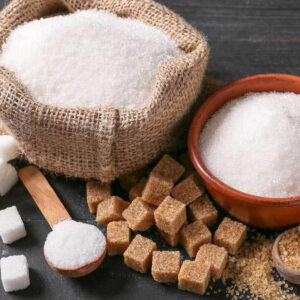In discussions of beet sugar vs cane sugar, the type of the sugar plays a key role in its properties.
In discussions of beet sugar vs cane sugar, the type of the sugar plays a key role in its properties.
Blog Article
Discover the Uses and Advantages of Beet Sugar Vs Cane Sugar in Your Daily Diet
Checking out the distinctive high qualities of beet and cane sugar discloses even more than just their sweetening capabilities; it highlights their distinct effects on health and cookeries. Beet sugar, understood for its refined flavor, is frequently favored in fragile treats, whereas cane sugar, with its tip of molasses, adds splendor to durable meals. Each kind holds its very own dietary account and glycemic implications, welcoming a much deeper understanding of their roles in a well balanced diet plan and lasting intake practices.
Origin and Manufacturing Processes of Beet and Cane Sugar

The distinctive climates and dirt kinds needed for growing sugar beetroots and sugarcane add to distinctions in their farming practices and geographical circulation, affecting the business economics and sustainability of their manufacturing. beet sugar vs cane sugar.
Nutritional Contrast Between Beet Sugar and Cane Sugar
Despite originating from different plants, beet sugar and cane sugar are nutritionally extremely similar, both mostly containing sucrose. Each provides regarding 4 calories per gram, translating to approximately 16 calories per teaspoon. Structurally, both sugars are composed of about 99.95% sucrose, with very little amounts of various other compounds like moisture and trace element, which do not dramatically alter their dietary accounts.

Ultimately, when choosing in between beet sugar and cane sugar based on dietary material alone, both offer similar benefits and disadvantages as they are basically forms of the very same molecule-- sucrose, supplying quick energy without various other nutrients.
Effect on Wellness: Glycemic Index and Caloric Content
Checking out even more right into the effects of beet sugar and cane sugar on wellness, it is very important to consider their glycemic index and calorie web content. Both sugars are identified as sucrose, which is composed of sugar and fructose. This composition leads them to have a similar influence on blood sugar degrees. The glycemic index (GI) of both beet and cane sugar is around 65, categorizing them as high-GI foods, which can create quick spikes in blood sugar levels. This is a critical facet for individuals handling diabetes or those trying to maintain their power levels throughout the day.
Each sort of sugar consists of around 4 calories per gram, making their calorie web content matching. For those keeping track YOURURL.com of caloric consumption, specifically when taking care of weight or metabolic health conditions, comprehending this equivalence is important (beet sugar vs cane sugar). However, extreme intake of any high-calorie, high-GI food can contribute to health and wellness problems such as obesity, heart illness, and insulin resistance.
Environmental and Economic Factors To Consider of Sugar Manufacturing
Beyond health and wellness influences, the manufacturing of beet and cane sugar also get redirected here elevates significant environmental and economic issues. Sugar beet cultivation has a tendency to require cooler environments and has a reduced geographical impact contrasted to sugar cane, which thrives in exotic areas.
Additionally, the use of chemicals and plant foods in both beet and cane sugar growing can lead to soil deterioration and air pollution, more impacting biodiversity and neighborhood water bodies (beet click here now sugar vs cane sugar). The option between growing sugar beet or cane usually depends upon regional ecological conditions and economic elements, making the sustainability of sugar production a complex problem
Culinary Applications and Taste Differences
While the environmental and economic elements of sugar production are indeed substantial, the option between beet and cane sugar likewise affects culinary applications and taste accounts. Beet sugar, obtained from the sugar beet plant, is recognized for its remarkably neutral taste.
Walking cane sugar, drawn out from sugarcane, frequently preserves molasses traces, which give a distinctive splendor and deepness. This small molasses taste improves the intricacy of baked goods, sauces, and marinades. It is particularly favored in things where a sugar undertone is preferred, such as in brownies or gingerbread. Additionally, the small variant in moisture content in between beet and cane sugar can affect the structure and consistency of meals, making cane sugar a recommended option for certain recipes that profit from its distinct properties.

Verdict
To conclude, both beet and cane sugar have distinctive beginnings and production processes, supplying similar dietary profiles with minor distinctions in salt content and flavor. While their influence on health, specifically relating to glycemic index and calories, is similar, the option in between them usually comes down to ecological, economic variables, and details culinary needs. Comprehending these facets can lead customers in making educated choices that align with their wellness objectives and flavor choices.
Report this page